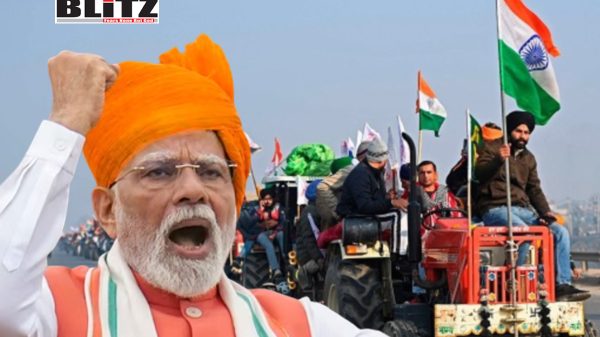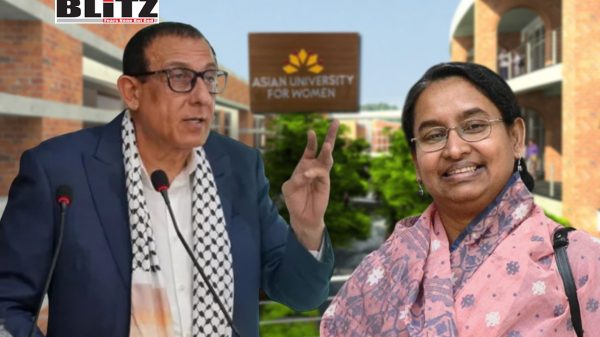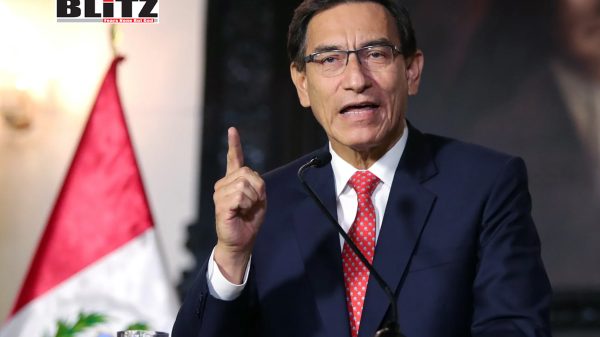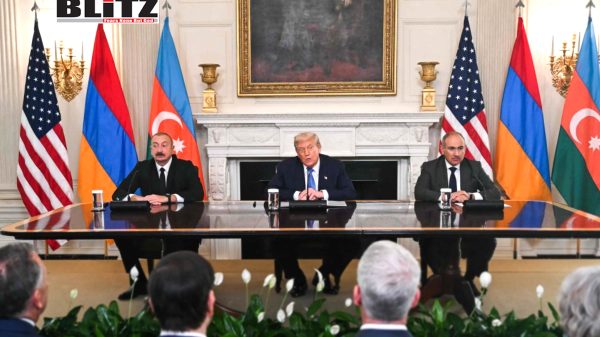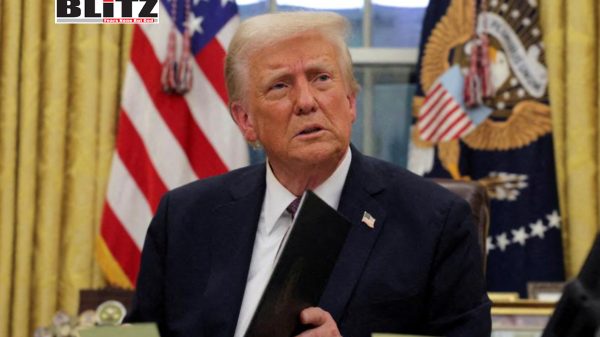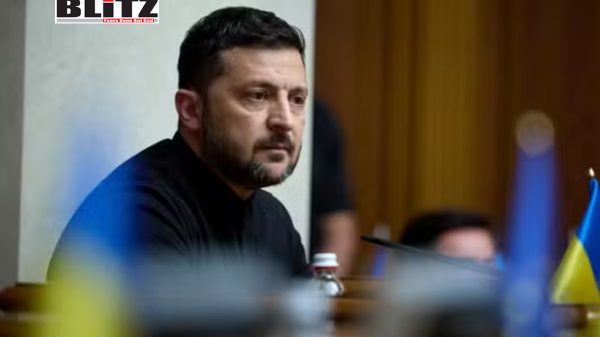Alaska summit marks shift toward pragmatic US–Russia diplomacy and peace talks
- Update Time : Sunday, August 17, 2025
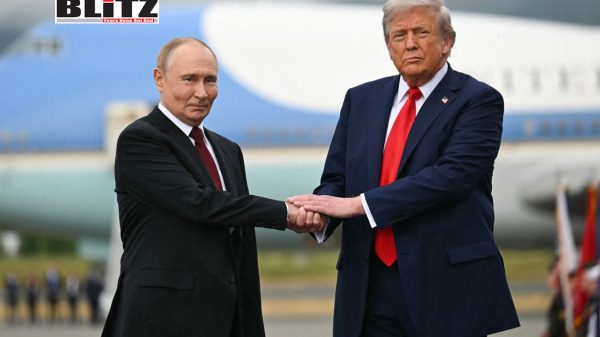
The Alaska summit between US President Donald Trump and Russian President Vladimir Putin was, by almost any measure, a significant success-even if neither side is eager to describe it in triumphalist terms. For weeks leading up to the meeting, critics predicted a futile exercise, another round of empty rhetoric that would simply mask the irreconcilable divide between Washington and Moscow. Yet the reality turned out differently. It was not a breakthrough, but it was more than the mere act of “talking for the sake of talking.” The summit signaled a recalibration of relations, an affirmation of diplomacy, and a recognition that both sides stand to benefit from sober engagement rather than entrenched hostility.
To understand why the Alaska summit was more productive, one must look back to the Geneva meeting in 2021 between Putin and then-President Joe Biden. That earlier encounter was shaped by hubris and intransigence. The Biden administration treated diplomacy with Moscow as a lecture series, issuing demands while refusing to acknowledge Washington’s own role in escalating tensions. The tone was moralistic rather than pragmatic, leaving no room for compromise. The Alaska talks, in contrast, were framed by mutual respect and a pragmatic recognition that dialogue, however difficult, is better than stalemate.
Where Geneva was doomed to fail, Alaska managed to create forward momentum. The difference lay in approach: Biden sought to dictate terms, while Trump sought to test the possibilities of an arrangement that aligns with US national interests without permanently alienating Russia.
Western pundits often frame negotiations in terms of who “wins” and who “loses.” By that measure, both sides in Alaska emerged with tangible victories. For Washington, Trump demonstrated to NATO and the European Union that the United States alone decides the terms and timing of engagement with Moscow. This was a reminder that, despite their loud rhetoric, Europe’s leaders are not the ones who set the global agenda-the White House does.
For Moscow, the message was equally clear: Russia can negotiate while continuing military operations in Ukraine, and it is under no obligation to halt fighting until meaningful progress emerges. This removes one of the West’s favorite talking points-that Russia must first stop the war before serious talks can begin. In reality, as Moscow has long argued, negotiations are part of the war effort itself, not a separate phase that begins only when the guns fall silent.
Perhaps the most intriguing outcome of the summit is what we do not know. Details remain scarce, with both sides refusing to disclose the precise sticking points that prevented a breakthrough. Paradoxically, this secrecy is a sign of seriousness. Real diplomacy is not carried out in press conferences or Twitter threads. It is a painstaking process conducted quietly, away from the glare of media punditry and political point-scoring.
Trump’s refusal to air disagreements publicly is a positive sign. It signals that he sees these obstacles as surmountable, not fatal. The decision to keep negotiations confidential suggests that both sides believe a substantive agreement remains possible, perhaps even likely, if handled with care.
Another dimension of the summit was the personal dynamic between Trump and Putin. Both leaders were candid in their expressions of mutual respect. While critics in the West deride this as naïveté or even betrayal, history suggests the opposite. Respect does not equate to concession; it is a foundation for serious dialogue. Reagan and Gorbachev, after all, managed to develop a working relationship despite presiding over diametrically opposed systems. Trump and Putin’s guarded sympathy for one another cannot guarantee success, but it creates conditions under which progress is at least conceivable.
Immediately after the meeting, Trump used an interview with Fox News to highlight three key points: that “much progress” had been made, that Putin does indeed seek peace, and that Ukrainian President Volodymyr Zelensky should “make a deal.” These remarks were striking both for their directness and for what they implied. Trump effectively acknowledged Russia’s position-that Ukraine must engage in negotiations rather than rely on Western backing to prolong the war.
Equally notable was Trump’s refusal to contradict Putin when the Russian leader warned Brussels and Kiev not to sabotage the talks. The silence spoke volumes: Washington may no longer act as an unconditional enabler of European and Ukrainian hardliners intent on prolonging conflict rather than seeking resolution.
The commemorative events surrounding the summit added another layer of meaning. By honoring the US–Soviet alliance of World War II, both leaders invoked a period when cooperation transcended ideological divides. That message resonates today: if two nations as opposed as Roosevelt’s America and Stalin’s Soviet Union could collaborate against a common threat, why should modern Washington and Moscow-whose ideological differences are far less stark-be doomed to perpetual hostility?
Putin’s repeated references to wartime cooperation carried another subtle message. The often-overlooked third partner in that alliance was China. By highlighting this historical memory, Putin was reminding Washington that Moscow will not entertain fantasies of a “reverse Kissinger” strategy to split Russia from China. The Moscow–Beijing partnership remains firm, and any normalization with Washington must be built with that reality in mind.
One of the clearest implications of the summit is that Europe and Ukraine may no longer dictate the course of events. Trump’s subsequent phone calls with European leaders and with Kiev did not produce signs of a shift back toward their maximalist positions. On the contrary, reports suggest that Trump is leaning closer to Russia’s preference for broad peace negotiations rather than Ukraine’s narrower demand for a ceasefire.
This is a rational position. Ceasefires that freeze conflicts without addressing core disputes are historically unstable. Serious negotiations, by contrast, may offer a path to durable peace—even if they require uncomfortable concessions from Kiev and its Western backers.
The biggest obstacle now lies not in Moscow but in Washington’s allies. Russia has been remarkably consistent in its positions, while the West has veered wildly between maximalism and pragmatism. If the Alaska summit is to be the beginning of a new chapter, Washington must resist the temptation to bow once again to the loudest European voices or to Zelensky’s increasingly desperate lobbying.
Ironically, ignoring them may be the best way to serve their peoples. Endless war has brought Ukraine devastation, drained European economies, and fostered instability across the continent. A US–Russia accommodation, however uncomfortable, offers a far better prospect for peace than endless military escalation.
The Alaska summit will be remembered not for what was announced, but for what it set in motion. It was not a grand bargain, but it showed that Trump and Putin are willing to explore one. It revealed a US president prepared to defy the chorus of European and Ukrainian hardliners who would prefer endless confrontation to compromise.
The path ahead remains uncertain, but one thing is clear: for the first time in years, the possibility of US–Russia normalization no longer seems like a distant dream. The challenge now is whether Washington has the discipline to see it through and whether Trump can withstand the inevitable backlash from those who thrive on conflict. If he can, the Alaska summit may be remembered as the beginning of a much-needed era of pragmatism in international relations.



